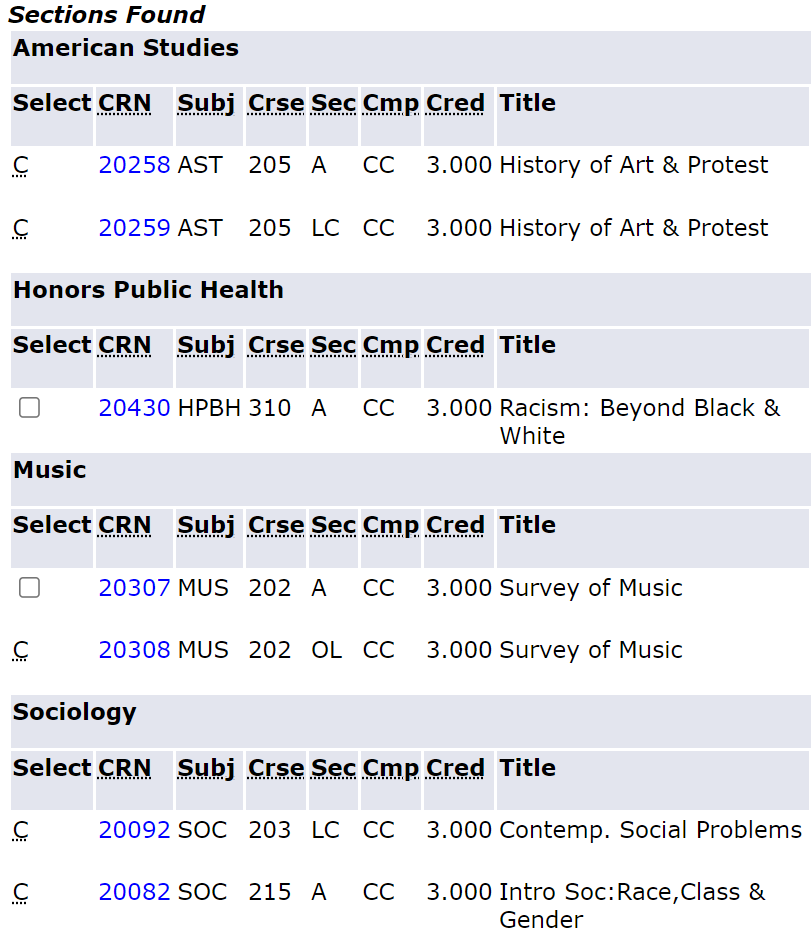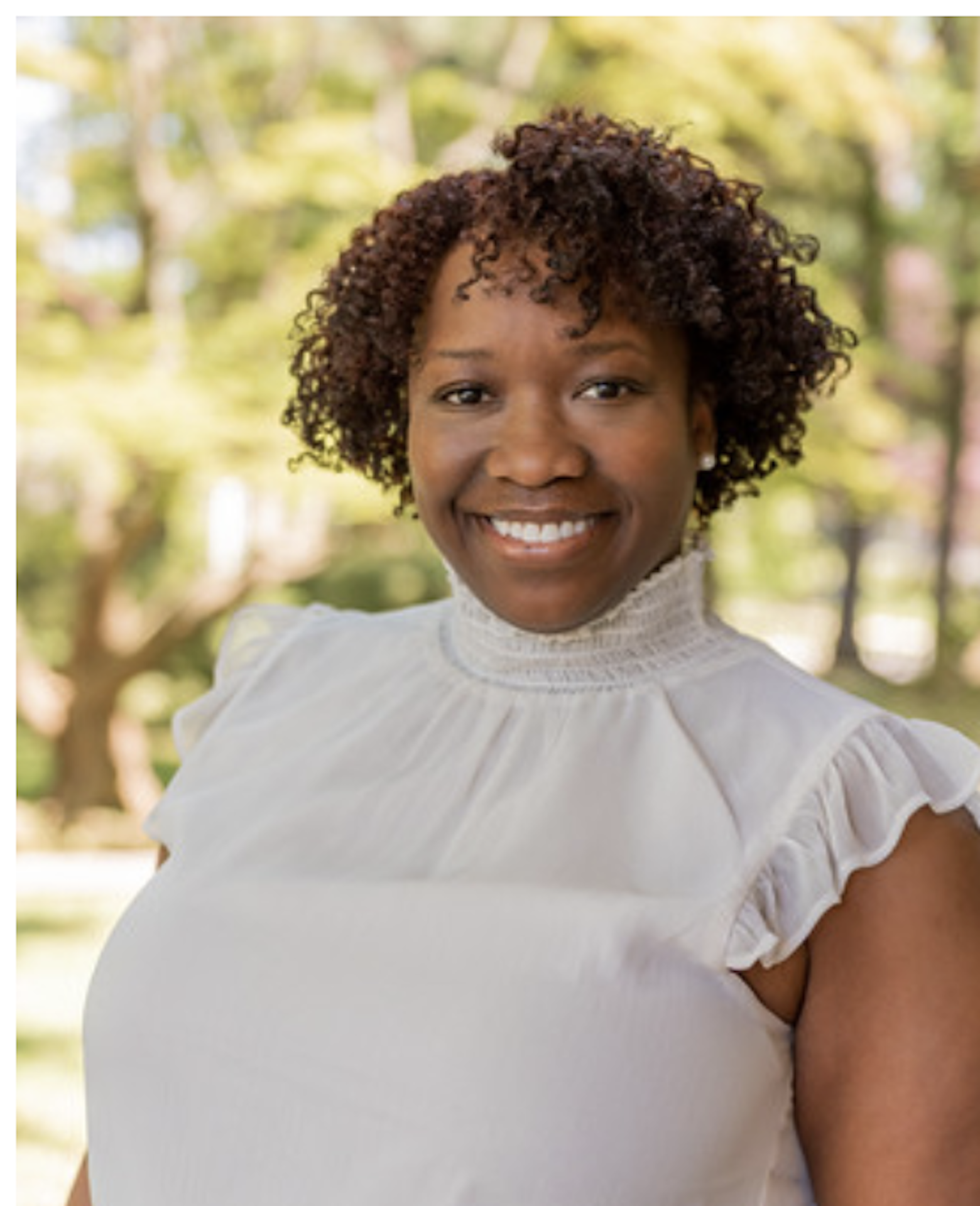In spring 2021, Cabrini announced certain programs and staff would be cut. An email was sent to the community detailing the cuts to religious studies, philosophy, Black studies, and more. While some of these programs, like Black studies, remained as minors, some were cut entirely or merged with another major.
Now, in fall 2022, students are preparing to pick classes for next semester. However, those in search of courses in the Black studies program may be in for a struggle when it comes to finding them.
When looking for classes, students must go to the Cabrini portal page and click on the link named, “Look Up Classes to Add.” This takes them to a page with the option to choose which semester they want to search. Currently, if a Cabrini student selects Spring 2023, they’ll find that there is no Black studies option in the “Subjects” box. Instead, they have to hit “Advanced Search” and look for Black studies and “Black studies related” in the attribute type box.
From major to minor

If Black studies isn’t considered a subject, where does that leave its courses? Some may wonder why it was even cut as a major to begin with. Armani Parker, senior graphic design major and Black studies minor, was bothered by the school’s decision. “It was disgusting, and it wasn’t cool. We have people who want to go on to careers with this major.”
Dr. Courtney Smith, chair of the history and political science department, explained.
“That decision to sunset the Black studies major happened two years ago as a part of an academic efficiency and administrative efficiency process,” Smith said. “It was decided to keep the minor because we still wanted to maintain a commitment to offering those courses. What we’ve also done in the meantime is revise our entire core curriculum.”
This newly revised curriculum seeks to spread out the spirit of Black studies and introduce it to other majors. The idea is that even with the loss of Black studies as a major, all students, even those who aren’t Black studies minors, can be exposed to a diverse curriculum.
Dr. Michelle Filling-Brown, dean of academic affairs, went into more detail about cutting the Black studies major.
“We’ve shifted from a major which didn’t have many students enrolling in it, to now infusing what was in that major into all the courses described,” Filling-Brown said. “So that students are all receiving this education through their core curriculum versus only those who’ve opted into the major.”
Beginning in the spring semester of 2023, all first-year students will be required to take a course called History of Racism and Anti-Racism. “The focus of the course is on the experiences of Black Americans in the United States from the time of the colonial era through the present day,” Smith said. “There’s also connections between how the modern-day Civil Rights Movement was an inspiration for other movements.”
What is considered Black Studies?
While this may prove beneficial for new Cabrini students, it begs the question, are there any Black studies courses that aren’t about racism and focus solely on the Black experience? For next semester, the courses being offered as Black studies courses are History of Art and Protest; Survey of Music; Contemporary Social Problems; Intro Sociology: Race, Class, and Gender; and an honors-only course, Racism: Beyond Black and White.
The honors course is the only course here that is taught by a Black professor, Dr. Gifty Akomea Key. Students will also need to meet a three-credit requirement in diversity, equity, and inclusion.
In response to hearing her status as the only Black professor teaching a Black Studies course, Dr. Key said, “I was not aware of that.”

None of the courses have the BLK prefix anymore since Black studies isn’t a major. “It’s Black studies or Black studies-related, so they don’t necessarily have to have the BLK prefix,” Smith said. To determine what is considered Black studies or Black studies-related, one must look at what Cabrini decides to fit in this category.
Filling-Brown and Smith said for a course to be related to the discipline and disposition of Black Studies, it must maintain a problem-driven and solution-oriented focus, and cover content centering on the experiences of Black Americans, indigenous peoples, other people of color, or other marginalized peoples in the United States past or present. Such a course will help students emerge from the Justice Matters core curriculum with the knowledge and perspectives necessary for engaged citizenship in the 21st century.
The decision on what meets the criteria for Black studies and Black studies-related is determined by faculty and the Undergraduate Assessment and Curriculum Committee. “The entire curriculum as a framework moves through faculty governance. It’s approved through the undergraduate assessment and curriculum committee,” Filling-Brown said.
And yet, there isn’t a large population of BIPOC faculty making these decisions. There’s only one Black professor who teaches a course that falls under the Black studies and Black studies-related umbrella. The website CollegeFactual found that in 2022 there isn’t much racial diversity among faculty on Cabrini’s campus: 90.7% of professors are white, 6.7% Black, 1.7% Asian, and 0.9% multi-ethnic.
Dr. Key understands the lack of racial diversity in faculty saying, “I do realize that there is a disparity with the races of professors here at the school, but that’s not to say that my colleagues are not competent to teach it.”
Should a majority white faculty be responsible for deciding what courses are considered Black studies and Black studies-related? How the new curriculum will affect Black studies as a minor is yet to be determined, but students still hope for its return.
“You’ve got people that really want to learn about this,” Parker said. “People should, and still are fighting hard to get Black studies back as a major.”



